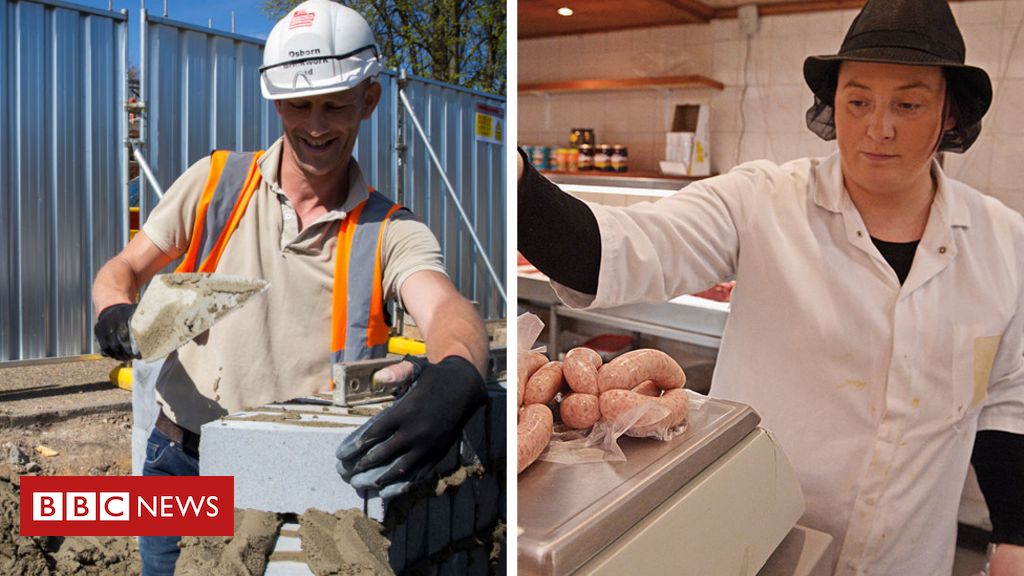Butchers, bricklayers and welders are in such short supply that UK employers should be able to recruit them from abroad when EU freedom of movement rules end, government advisers say.
The Migration Advisory Committee also wants senior care workers and nursing assistants to be added to the “shortage occupation list”.
And it warned of shortages in frontline social care staff as most roles do not earn enough to be included on the list.
No 10 says it will consider its report.
MAC chairman, Professor Brian Bell, said it was “extraordinary” that skilled jobs could not be filled, pointing out the problem was “sector-wide”.
The committee was asked to review what medium-skill occupations should be included on the shortage occupation list ahead of the introduction of a new points-based visa system on 1 January.
The shortage occupation list, which highlights the occupations employers are having difficulty in finding workers for, includes a minimum salary requirement of £20,480. It currently includes jobs such as engineers, scientists and social workers.
Prof Bell said: “The number of migrants coming to work in the UK has already decreased and we are likely to see an increase in unemployment over the next year as the economic impact of the pandemic continues, so this has been a very challenging time to look at the shortage occupation lists.
“It has made us more willing to recommend some roles for inclusion simply because it is the sensible thing to do, but we have been clear that migration is not always the solution.”
‘Increase wages’
The committee also recommended additions to the separate lists for the devolved nations.
In its report, the MAC says fishmongers, bakers and horticultural workers from abroad should be allowed to work in Northern Ireland; childminders and nursery nurses in Scotland, and health professionals in Wales.
The MAC said there was a need to make social care jobs more attractive to UK workers by increasing salaries.
Prof Bell said it was his “personal view” that wages should be “significantly, significantly higher” than £10 an hour.
The government has previously said it wanted employers in the social care sector to invest more in training and development for people already in the UK – including EU citizens – and it had provided additional funding to support this.
Downing Street said it would be looking at the MAC’s recommendations closely before responding.
“We have set out that we want employers to focus on investing in the domestic workforce,” the prime minister’s official spokesman said.
He added: “It is worth noting that the Migration Advisory Committee itself is clear that immigration isn’t the solution to addressing staff levels in the social care sector.”

